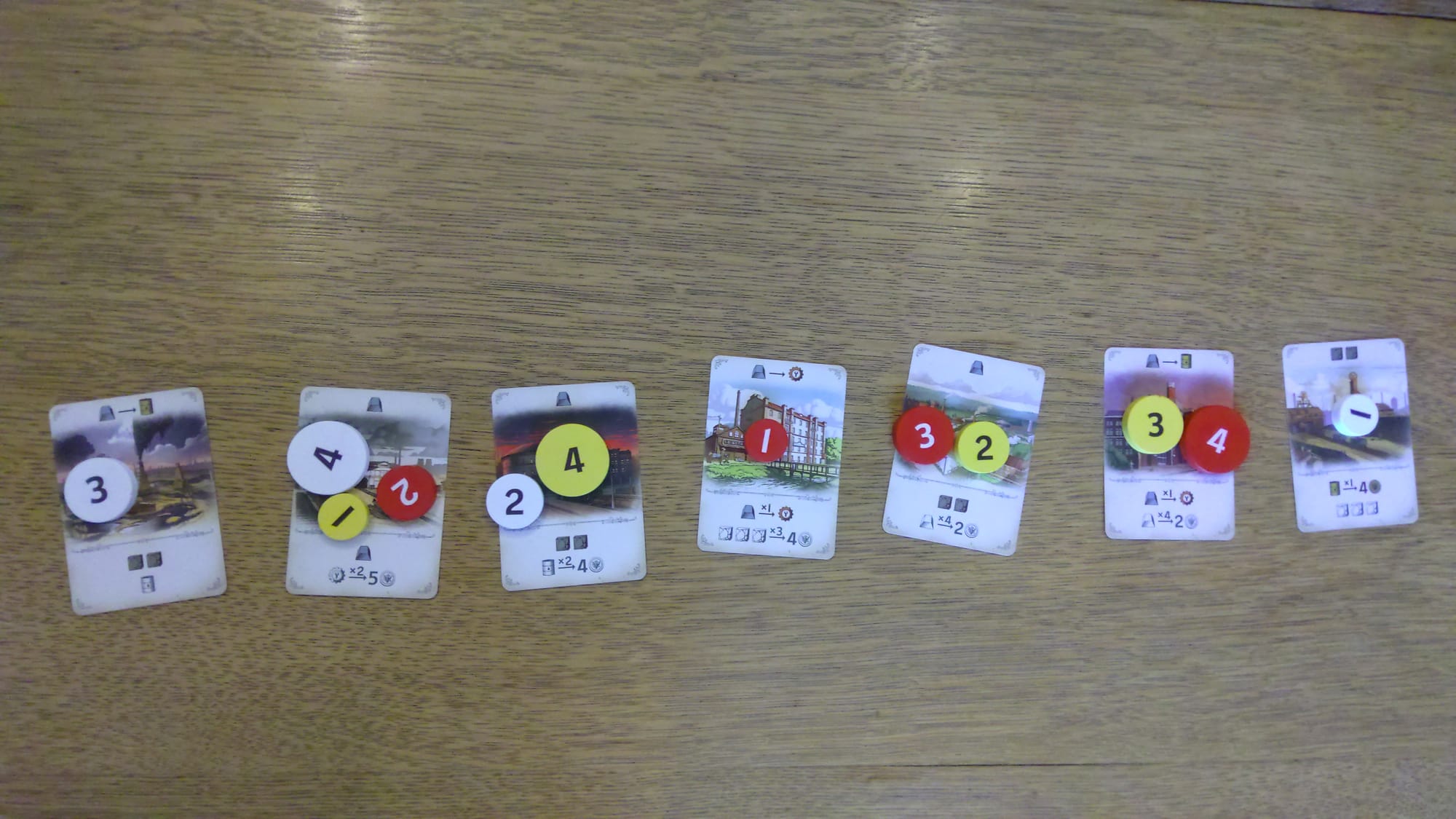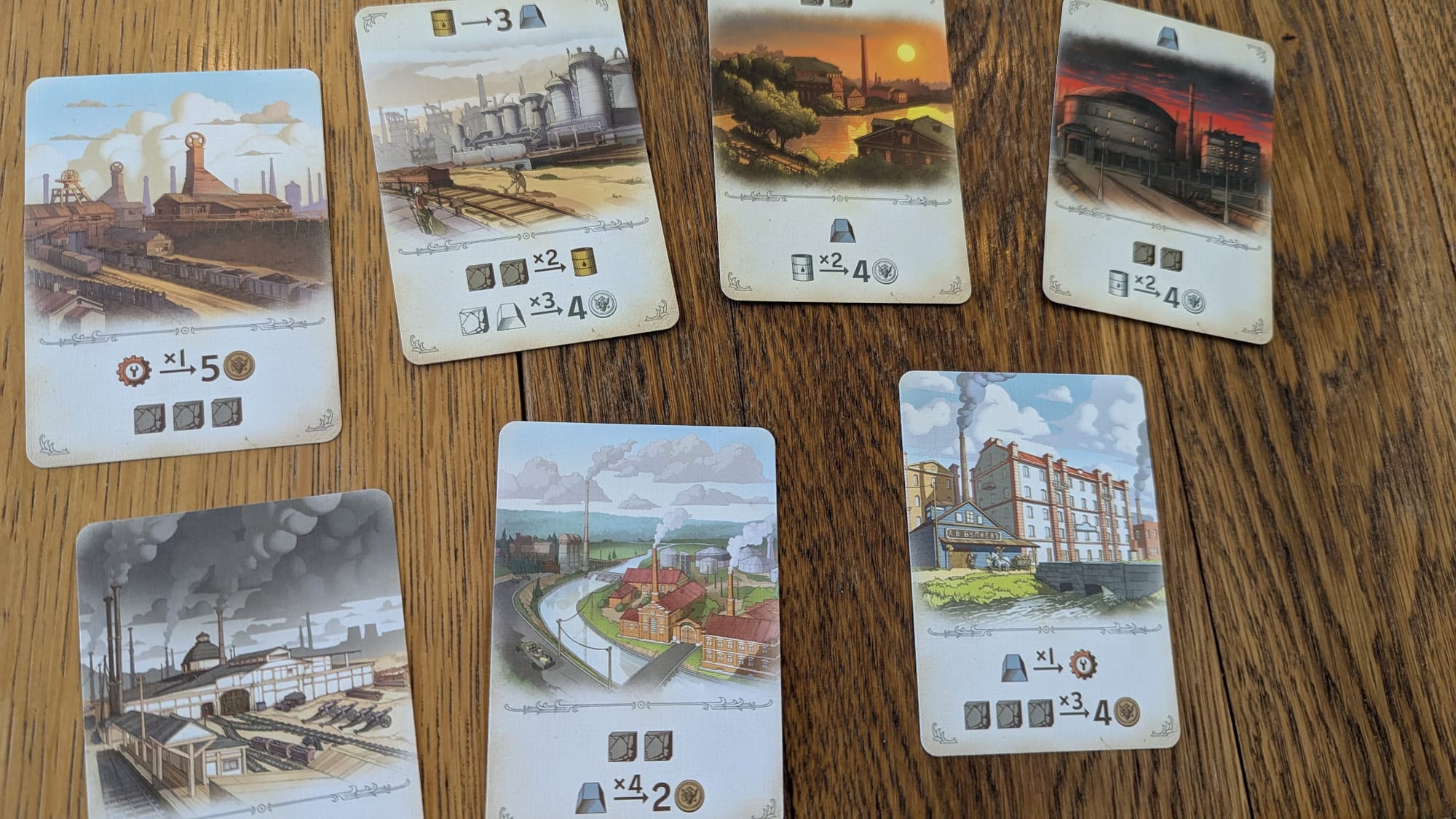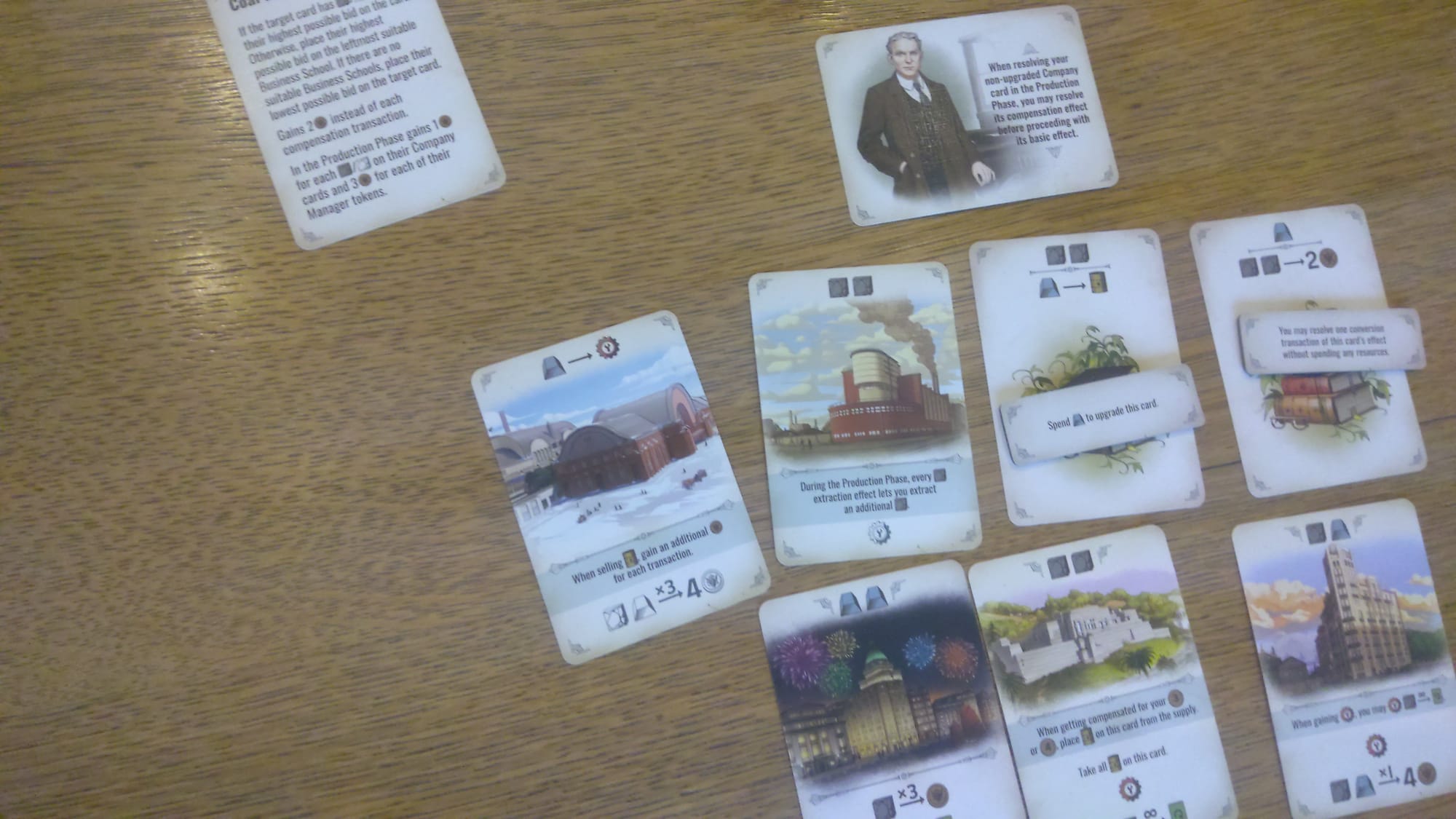I love games that take one or two mechanics and implement them either really cleanly or with a fresh twist, preferably both. It's why I'm always down to play a Knizia, and more relevantly, it's why I was pretty much always in a game of Furnace when it came out. The box identifies Furnace as an engine builder and I mean, I guessssssss, but that's like the people that call Die Hard a Christmas movie. The engine building is set dressing that compliments the real focal point here, the auctions.

Furnace has players vying to make the most money by gathering and manipulating resources, and then ultimately selling them with the cards they win in the game's 4 auctions. Auctions involve players taking turns playing one of their 4 numbered discs onto the round’s offering of cards until everyone's spent—already a system that's nice and simple to teach.I like it all the more because the restriction placed by the discs circumvent the runaway leader trap economic auction games can fall into, and compensation softens the blow of not getting a card you bid on. But then you get into the deeper strategy implications of compensation, and you get people like me who have played a ton of Furnace trying to get compensation on cards with specific discs without winning them while still winning the cards that fit in your engine, and it's an absolute delight that feels rather unique to this game. The production phase where players run their engines, on the other hand, is much less special and has a tendency to drag, especially in the later rounds when everyone's got a ton of cards and there's a definite best order of play that'll score an additional 10-20 points but isn't easily discerned. I generally try to guide my groups to the variant that fixes cards in order as soon as they're won, as it cuts down on the analysis paralysis if they’re willing to accept the naturally lower scores we'll wind up with.

Furnace
Excellent
Furnace is a game that lives up to the hackneyed line “easy to learn, difficult to master”. It's just its systems and components, none of which feel overwrought. If you like auctions and/or engine building, you'll probably find Furnace the delight I do.
Pros
- Simple rules anyone can pick up that allow strategic depth
- Hits the sweet spot between crunchy and snappy
Cons
- Veers into overstaying its welcome if not playing the prescribed order variant
- Vague “industrial capitalism” is up there with high fantasy and Renaissance mercantilism in terms of themes that only have appeal inside the hobby
This review is based on a retail copy provided by the publisher.
Moving on, the Interbellum expansion is just about all you expect from expansions nowadays: components for an extra player, some extra asymmetric setup bits, and a handful of modules. Starting off on a high note, if you've played the base game to death like I have, the extra capitalists and startups are a godsend that totally refresh the game; I tossed them right in with their corresponding components, no notes. Likewise, teal is objectively one of the best colors, so I'm happy I get to play Furnace with it since it's the fifth player color. Moving on, the modules are more of a mixed bag, but deserve an itemized list, so here goes:

- Managers are bonus tiles that get seeded onto the business schools at the end of the auction offer, and are freely assigned to cards during production if won. I play with them if we're using the card order variant to soften the blow of not being able to optimize everything, but otherwise they just compound the analysis paralysis of the last couple rounds.
- The expansion cards are a necessity if you're playing with five, so there's that. But there's also their text effects, which obviously mess with the immediate readability of the base game's iconography. I honestly would've preferred they just added a new resource or set of iconography instead of expecting me to read that small font from across the table with stereotypically poor nerd eyesight.
- The variable capital discs are a fifth disc that allows players to bid with a strength equal to coal they pay to the supply when they play the disc, and I'm kinda split on them. On one hand, it's a huge buff to coal production, which in my experience was sorely needed. On the other, it opens a Pandora's box of interaction onto the definitionally balanced four discs 1-4. Some games, it's a boon, in others, it makes the auctions I loved a snore.
- Agent cards are a definite step up over the die for 2-player and enables solo games of Furnace, but then again I have a plethora of games I'm still taking off my shelf instead of Furnace at those counts, so here's the boomer 👍 that you're never sure is actually positive?
Furnace: Interbellum
Great
Interbellum is worth it for the extra setup and teal player pieces, which I use every time I play. The rest of it ranges from fine to good, with conditions.
Pros
- Gimme those teal discs
- more startups and capitalists are a breath of fresh air
Cons
- I ain't playing Furnace to do no readin'. This ain't Paperback or Dominion or whatever.
- Who is playing solo or 2-player Furnace?
This review is based on a retail copy provided by the publisher.





















